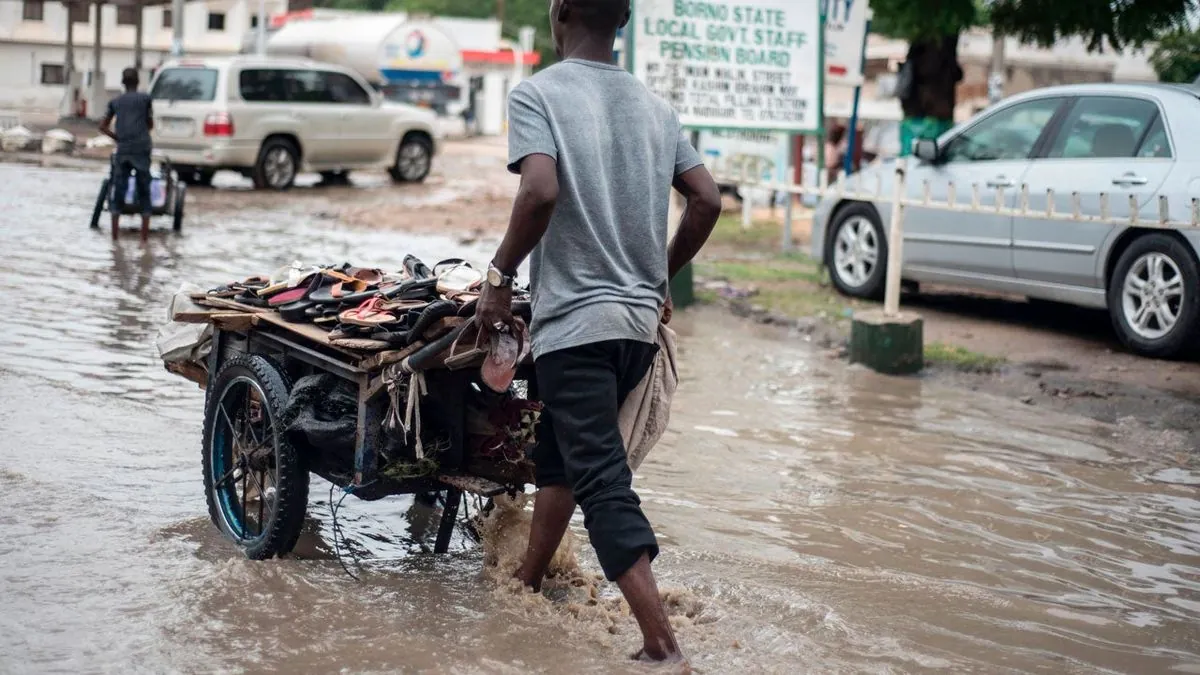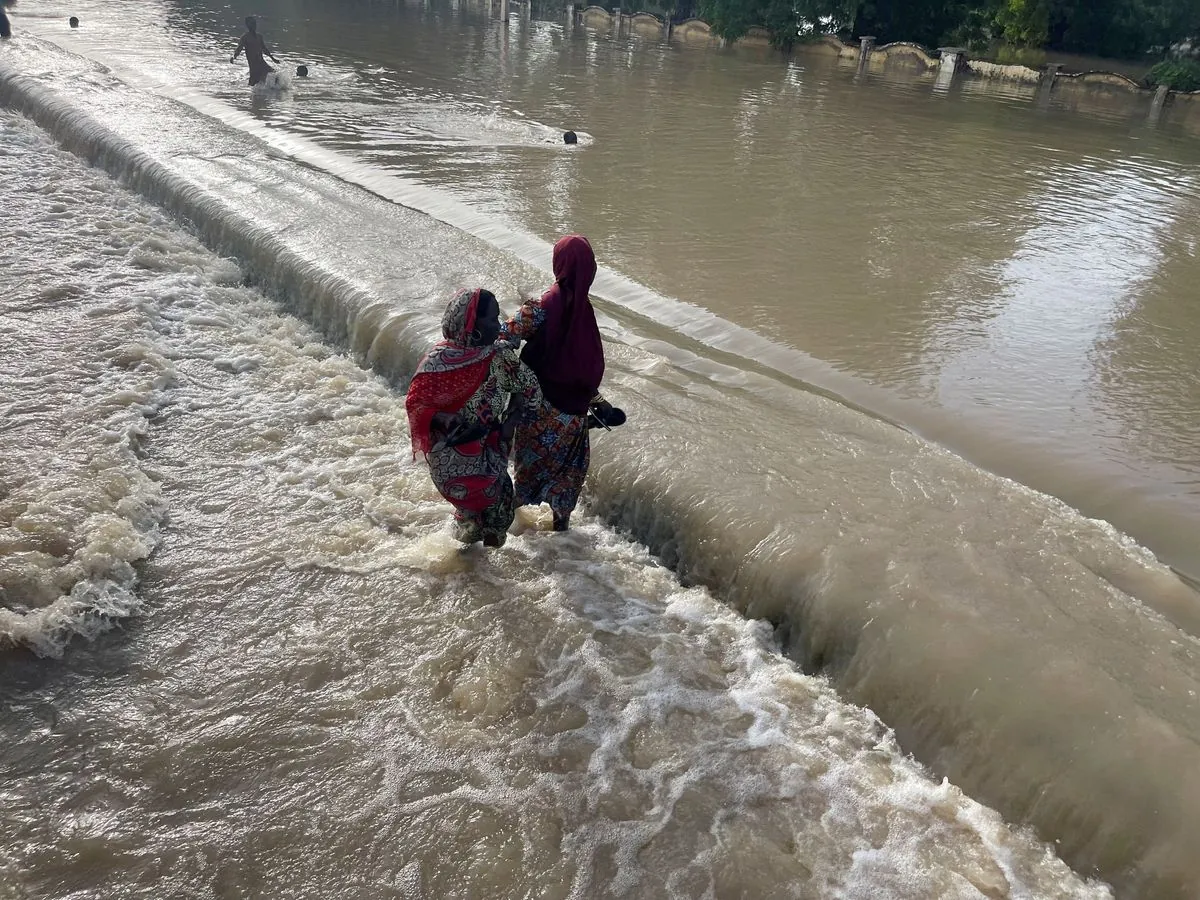Maiduguri Flood Crisis: Canoe Owners Accused of Exploiting Residents
Severe flooding in Maiduguri, Nigeria, has led to reliance on canoes for transportation. Some canoe owners are now charging exorbitant fees, exploiting residents already struggling with flood damage.

In Maiduguri, the capital of Borno State in northeastern Nigeria, residents are grappling with the aftermath of the most severe flooding in three decades. The disaster, triggered by a dam breach following heavy rainfall, has transformed the city's streets into waterways, necessitating the use of canoes for transportation.
Initially, canoe owners volunteered their services to assist in evacuating residents to safety. However, as the crisis persists, reports have emerged of some operators exploiting the situation by charging exorbitant fees for their services.
Falmata Muhammed, a 48-year-old mother of three, shared her experience of attempting to salvage some furniture. She was stunned when a canoe owner demanded 80,000 naira (approximately $49.56) for a short journey. This fee exceeds the monthly minimum wage in Nigeria, adding financial strain to those already devastated by the floods.
"Some are making it a big business, using the disaster to make a huge amount of money."
It's important to note that not all canoe owners are engaging in such practices. Mohammed Yusuf, a fisherman and canoe owner, stated that he continues to offer free transportation to residents, although some voluntarily offer payment for his services.

Maiduguri, founded in 1907 as a British military outpost, has a rich history as a major terminus for trans-Saharan trade routes. With a population of approximately 1.9 million as of 2021, the city is an important regional center for commerce. However, its location in the Sahel savanna region makes it vulnerable to climate-related challenges.
The current flooding crisis underscores the city's susceptibility to environmental disasters. Maiduguri has been affected by desertification and climate change in recent years, exacerbating the impact of extreme weather events. The city's hot, semi-arid climate typically includes a short rainy season, but the recent deluge has overwhelmed local infrastructure.
This disaster adds to the challenges faced by Maiduguri, which has been a target of Boko Haram insurgency since 2009. The city, home to the University of Maiduguri and known for its colorful markets and traditional crafts, is now focused on recovery and rebuilding in the wake of this unprecedented flooding.
As residents navigate this crisis, the contrast between those exploiting the situation and those continuing to offer assistance highlights the complex dynamics at play in disaster response. The flooding in Maiduguri serves as a stark reminder of the increasing impact of climate change on vulnerable communities and the need for robust disaster preparedness and response mechanisms.


































